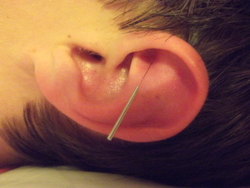The British Medical Journal has published research suggesting that clinical practice and healthcare policy underuse acupuncture treatment, despite rigorous systematic reviews documenting high or moderate certainty evidence. A team of Chinese authors identified 2471 systematic reviews published between 2000 and 2020. They concluded that a majority were methodologically rigorous, and a substantial portion provided moderate or high certainty evidence.
The team recommends that in their decision-making, health bodies make better use of the evidence for acupuncture’s effectiveness. Evidence should be better disseminated to clinicians and patients. Clinicians, researchers and funders should set joint research agendas. Researchers and granting agencies should focus on areas where acupuncture has shown large effects supported with low certainty evidence, and avoid research in areas where moderate or high certainty evidence has already proven the benefit of acupuncture.
(Evidence on acupuncture therapies is underused in clinical practice and healthcare policy. BMJ, 25 February 2022.)

 Researchers at the University of Alfenas Nursing School in Brazil, have found that ear acupuncture helps diabetic foot, as measured by improved vascular parameters after a course of treatment. A total of 44 patients with type 2 diabetes were randomly assigned to receive either five sessions of auricular (ear) acupuncture, or to a no-treatment control group.
Researchers at the University of Alfenas Nursing School in Brazil, have found that ear acupuncture helps diabetic foot, as measured by improved vascular parameters after a course of treatment. A total of 44 patients with type 2 diabetes were randomly assigned to receive either five sessions of auricular (ear) acupuncture, or to a no-treatment control group.  Researchers at DongShin University in Korea, have assessed the effectiveness of acupuncture for mild cognitive impairment (MCI), and found promising results. A total of 32 patients aged 55 to 85, and with MCI, were randomly assigned to one of four acupuncture treatment arms: a core group of acupuncture points for 30 minutes; core points for 20 minutes; core points plus an additional point; electrical stimulation of core points. Sessions were given three times a week for eight weeks.
Researchers at DongShin University in Korea, have assessed the effectiveness of acupuncture for mild cognitive impairment (MCI), and found promising results. A total of 32 patients aged 55 to 85, and with MCI, were randomly assigned to one of four acupuncture treatment arms: a core group of acupuncture points for 30 minutes; core points for 20 minutes; core points plus an additional point; electrical stimulation of core points. Sessions were given three times a week for eight weeks. University researchers in Turkey have found that acupressure after gall bladder removal, reduces pain and speeds recovery. A total of 65 patients undergoing laparoscopic gall bladder removal, were randomly assigned to receive either acupressure at four designated points, or light-touch contact as a control. Acupressure was given for 12 minutes at 0, 4 and 8 hours following surgery.
University researchers in Turkey have found that acupressure after gall bladder removal, reduces pain and speeds recovery. A total of 65 patients undergoing laparoscopic gall bladder removal, were randomly assigned to receive either acupressure at four designated points, or light-touch contact as a control. Acupressure was given for 12 minutes at 0, 4 and 8 hours following surgery.